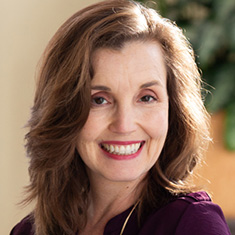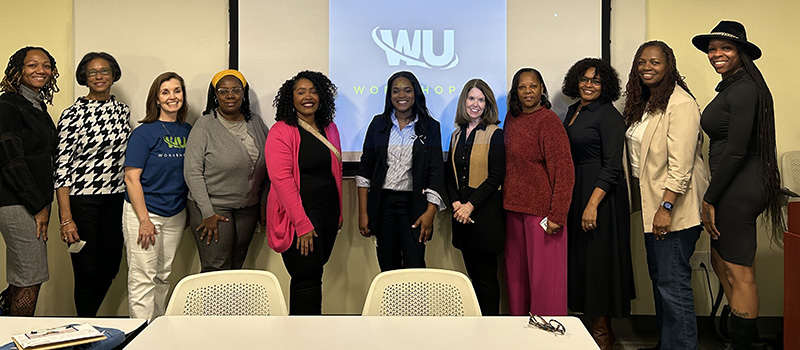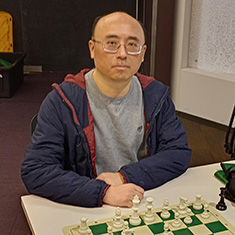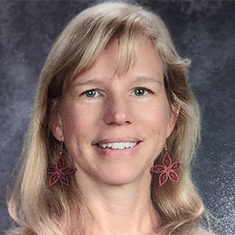2025 Schwab Alumni grant recipients focusing on youth educational projects
July 09, 2025 — Erin Owen ’94, Charlie Wong ’95, and Kate Worster Beran ’97 are the 2025 recipients of the Lori Ann Schwab ’95 Alumni Grants.
Schwab was committed to making the world a better place by helping others. Sadly, her life was cut short by a sudden illness while she was studying in London in 1994.
The grant provides stipends to support specific community service projects that recipients are significantly involved with. It is open to alumni from the classes of 1992 through 1998 – the years that overlapped with Schwab’s time at Grinnell College. The grant has been awarded to 44 alums over the last 18 years.
Owen, Wong, and Beran each received grants for their respective projects with amounts that were based on their proposals.
 Erin Owen ’94
Erin Owen ’94
Owen will use her grant to grow the coaching offered to students in Workshop U, a postsecondary program for under-resourced students ages 18-24 in Philadelphia. Currently in a pilot phase, Workshop U is a one-year, credit bearing program. Through coursework, personalized coaching and internships, Workshop U students develop a vision for what they want their life to look like now while building the skills they need to make that vision a reality.
“The need for Workshop U emerges from a profound shift in both the labor market and the lives
of young adults,” Owen says. “The journey into adulthood is a perilous one, and young people are largely expected to make it alone. This challenge is particularly acute for young people from marginalized communities, who often face additional barriers including financial instability, limited professional networks, and inadequate access to mental health support.”
Owen, a professionally trained coach with more than 20 years of experience, was invited by the co-founders of Workshop U to help create the coaching component in the program. During Workshop U’s first pilot year, Erin taught a year-long course to students that focused on cultivating self-leadership skills. In addition, she coached students 1:1 and taught students how to peer coach one another.
 Erin Owen ’94 poses with the coaching team at Workshop U in Philadelphia.
Erin Owen ’94 poses with the coaching team at Workshop U in Philadelphia.
Workshop U is free to students and relies solely on grant funding. The $2,000 Schwab grant will be utilized to scale the team of coaches that work with students, including covering the costs of coaching stipends along with coach recruiting and onboarding.
Wong received a $900 grant to assist Iowa’s top scholastic chess players in competing at national tournaments and to help establish additional youth chess events.
A principal software engineer at RTX in Cedar Rapids, Wong is a volunteer for Chess in Iowa, a nonprofit organization dedicated to promoting the advancement of chess and chess players in Iowa. The club’s primary focus is students in K-12.
 Charlie Wong ’95
Charlie Wong ’95
“Chess is a fun and beneficial activity for children,” Wong says. “It fosters critical thinking and problem solving skills.”
The club supports chess tournaments for students where the winners go on to represent Iowa in national competitions. Currently, the winners’ families must cover the travel and lodging expenses. The grant funding will provide stipends to these players’ families, ensuring financial issues do not prevent them from competing at the national level.
Another key goal of Chess in Iowa is to increase the number of chess tournaments available for scholastic players. With this grant, the club will discuss organizing additional events, including reinstating the Prairie Fall and Winter Classic in Cedar Rapids.
“Increasing the number of scholastic chess tournaments will encourage more children to take up the game,” Wong says. “I am honored to receive this award and am confident it will advance scholastic chess in Iowa. I am especially proud of our volunteers, whose hard work has made this achievement possible.”
Beran was awarded a $2,000 grant to support students in several STEM (science, technology, engineering, math) opportunities associated with Oregon State University. For the past eight years, Beran has taught science at College Hill High School in Corvallis, Oregon. The school serves as an alternative education program that aims to help students who are behind in credits to complete their high school diplomas.
“I particularly love to help students see what life can be like beyond and outside of high school,” she says. “While our school is down the street from Oregon State, there can be an invisible barrier between many in our community and the campus.”
 Kate Worster Beran ’97
Kate Worster Beran ’97
Four College Hill students will attend a 3-day summer STEM course called Toxicology run by Oregon State’s STEM Academy. Thanks to Schwab grant funding, at the end of the course, these students will get to take a tour of some other parts of campus, eat in the dining halls, and go bowling or play other games in the student center. After staying the night in a dorm, the students will explore more of campus, including a chance to meet with the financial aid department.
The grant will also be used to support a cohort for an evening science workshop called AWSEM (Advancement of Women in Science, Engineering, and Math). The group meets on Monday evenings, where they log in to a Zoom program organized by Oregon State STEM undergraduate students who are also female and students of color. Each week is an introduction to a different science topic.
“Receiving this grant means that I can offer my science students opportunities to begin to imagine themselves after high school pursuing academics and research and, just as importantly, linking their lives with like-minded peers and mentors who want to see them succeed,” Beran says.
— by Jeremy Shapiro